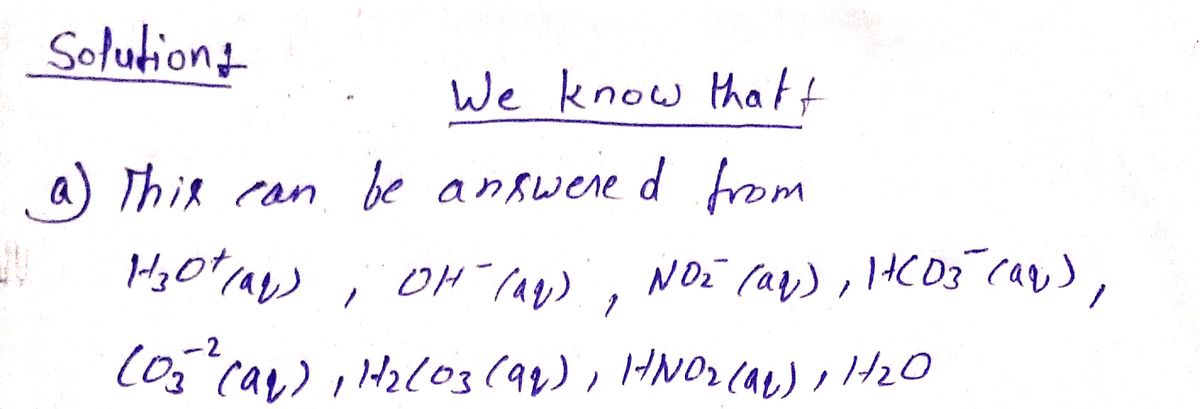Nitrous acid (HNO2) is an essentially nonvolatile acid that ionizes in water with an equilibrium constant of 4 x 10-4 mol/liter. Assume that 10 mmol of nitrous acid are added to a liter of water that is open to the atmosphere. a. List all chemical species that you expect to occur in the water. For which of these do you know the concentration a priori? (you may assume the water has reached equilibrium with the air, and therefore H2CO3* concentration is approximately 12 mM, per Henry’s law) b. Write every equation that constrains the composition of the system at equilibrium identifying each as a mass conservation, mass action, or electroneutrality constraint.
Ionic Equilibrium
Chemical equilibrium and ionic equilibrium are two major concepts in chemistry. Ionic equilibrium deals with the equilibrium involved in an ionization process while chemical equilibrium deals with the equilibrium during a chemical change. Ionic equilibrium is established between the ions and unionized species in a system. Understanding the concept of ionic equilibrium is very important to answer the questions related to certain chemical reactions in chemistry.
Arrhenius Acid
Arrhenius acid act as a good electrolyte as it dissociates to its respective ions in the aqueous solutions. Keeping it similar to the general acid properties, Arrhenius acid also neutralizes bases and turns litmus paper into red.
Bronsted Lowry Base In Inorganic Chemistry
Bronsted-Lowry base in inorganic chemistry is any chemical substance that can accept a proton from the other chemical substance it is reacting with.
Nitrous acid (HNO2) is an essentially nonvolatile acid that ionizes in water with
an equilibrium constant of 4 x 10-4 mol/liter. Assume that 10 mmol of nitrous acid are
added to a liter of water that is open to the atmosphere.
a. List all chemical species that you expect to occur in the water. For which of these
do you know the concentration a priori? (you may assume the water has reached
equilibrium with the air, and therefore H2CO3* concentration is approximately 12
mM, per Henry’s law)
b. Write every equation that constrains the composition of the system at equilibrium
identifying each as a mass conservation, mass action, or electroneutrality
constraint.

Trending now
This is a popular solution!
Step by step
Solved in 2 steps with 2 images




